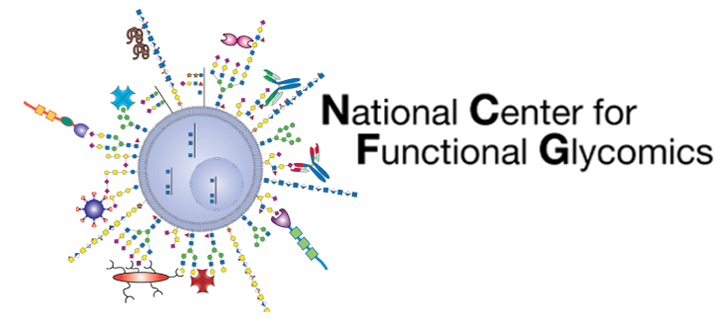DeBose-Boyd, Nyame, Cummings. Molecular cloning and characterization of an alpha1,3 fucosyltransferase, CEFT-1, from Caenorhabditis elegans.. Glycobiology. 1998;8(9):905–17.
Abstract
We report on the identification, molecular cloning, and characterization of an alpha1,3 fucosyltransferase (alpha1,3FT) expressed by the nematode, Caenorhabditis elegans . Although C. elegans glycoconjugates do not express the Lewis x antigen Galbeta1-->4[Fucalpha1-->3]GlcNAcbeta-->R, detergent extracts of adult C.elegans contain an alpha1,3FT that can fucosylate both nonsialylated and sialylated acceptor glycans to generate the Lexand sialyl Lexantigens, as well as the lacdiNAc-containing acceptor GalNAcbeta1-->4GlcNAcbeta1-->R to generate GalNAcbeta1-->4 [Fucalpha1-->3]GlcNAcbeta1-->R. A search of the C.elegans genome database revealed the existence of a gene with 20-23% overall identity to all five cloned human alpha1,3FTs. The putative cDNA for the C.elegans alpha1,3FT (CEFT-1) was amplified by PCR from a cDNA lambdaZAP library, cloned, and sequenced. COS7 cells transiently transfected with cDNA encoding CEFT-1 express the Lex, but not sLexantigen. The CEFT-1 in the transfected cell extracts can synthesize Lex, but not sialyl Lex, using exogenous acceptors. A second fucosyltransferase activity was detected in extracts of C. elegans that transfers Fuc in alpha1,2 linkage to Gal specifically on type-1 chains. The discovery of alpha-fucosyltransferases in C. elegans opens the possibility of using this well-characterized nematode as a model system for studying the role of fucosylated glycans in the development and survival of C.elegans and possibly other helminths.
Last updated on 03/06/2023
